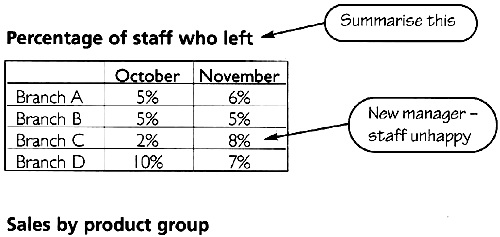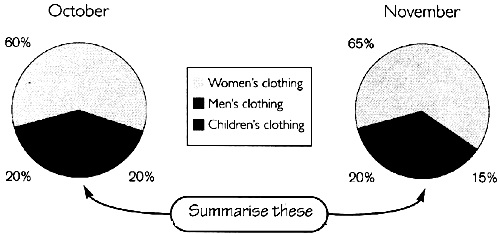商务英语,应用英语和英语专业有什么区别啊?
发布时间:2021-05-22
商务英语,应用英语和英语专业有什么区别啊?
最佳答案
1、培养目标不同
英语专业培养目标培养坚实的英语语言基本功,系统的英语语言学、文学和文化知识,丰富的经贸、法律、科技知识面,熟练的英汉双语翻译技能,较高的人文素养和国际视野,良好的沟通能力,能适应和胜任外事、经贸、文化、传媒、出版、教育、科研、旅游等部门工作。
商务英语培养具有扎实的英语基本功、宽阔的国际化视野、熟练的国际商务知识与技能,掌握经济、管理和法学等相关学科的基本知识和理论,具备较高的人文素养和跨文化交际与沟通能力,能在国际环境中用英语从事商务、经贸、管理、金融、外事等工作的应用型英语人才。
2、主要课程不同
英语专业基础英语、高级英语、语音、基础阅读、高级阅读、听说读写课程(听力、口语、写作等)、视听说、口笔译、英美文学、语言学概论、英语国家概况、 科技翻译、经贸翻译、法律翻译、交替传译、同声传译、第二外语、西方文化、计算机应用等。
语音、口语、听力、基础阅读、高级阅读、英语视听、交际英语、口译、笔译、英语写作、西方文化、国际商务英语、电子商务英语、第二外语、国际金融、国际商法、国际结算、市场营销、进出口实务与程序、外贸函电、商务谈判、计算机应用等。
应用英语本专业面向涉外服务业,服务于外资、合资企业、商贸企业、涉外宾馆及其他涉外部门一线岗位,培养德、智、体、美等全面发展,心理健康,掌握应用英语(涉外文秘、外事英语方向)必备的英语语言基础知识及外事机构所需要的礼仪、接待、文秘、商务等理论专门知识。
3、就业方向不同
英语专业毕业后可从事国家机关、外交、外贸、出版、新闻、旅游等部门和国外独资及合资企业相关口、笔译、业务与管理工作和初等教育、大专院校及科研部门的教学和科研工作。
商务英语毕业后可从事商务、经贸、管理、金融、外事等领域的管理、业务、文秘等工作;从事外贸企业、合资企业、 国有企业、外资企业的进出口业务工作,从事商务、金融领域的教学和科研工作。
应用英语毕业生主要从事,英语翻译(口译、笔译);涉外秘书;国际商务助理;商贸企业从业人员(接待、服务等);其它涉外部门职员。
下面小编为大家准备了 商务英语考试 的相关考题,供大家学习参考。
—You work for a small chain of clothing stores. The Managing Director has asked you to write a short report on last month's performance.
—Look at the charts and table below, on which you have already made some handwritten notes.
—Then, using all your handwritten notes, write the report for your Managing Director
—Write 120-140 words.



To: Chris Sutcliffe, Managing Director From: Lynn Dent Subject: Performance in November This report covers November's results in branches A-D, compared with those in October MO NTH LY TURN OVER Only branch A saw an improvement in turnover, which was probably the result of an advertising campaign in the local media. Neither branch B nor branch D reported any change, while in branch C turnover fell considerably STAFF TURNOVER The only significant changes in staff turnover were in branches C and D. In C it rose sharply, from 2% to 8%, mainly because of dissatisfaction with the new manager on the other hand, there was an improvement in branch D's previous high level of 10%. SALES BY PRODUCTTYPE Women's clothes, which are already the best selling goods, increased from 60 to 65% of total sales, at the expense 'of men's clothing. Children's clothes were unchanged, at 20%.
Good acquaintance of finance is a must.
A
Financial Planning: the factors involved in deciding on appropriate pricing strategies
Suggested answers: a.In any single market three basic factors determine the boundaries of the pricing decision. The price floor, or minimum price, is bounded by product cost. The price ceiling, or maximum price, is bounded by competitive prices for comparable products and ability of customers to pay. Between the floor and ceiling for every product there is an optimum price, which is a function of the demand for the product and the cost of supplying the product. The international executive must develop a pricing system and pricing policies that 'address these fundamental factors in each of the national markets in which his company operates. b.In addition to developing a pricing system, the system must also be consistent with a number of uniquely international constraints. In addition to the diversity of national markets in all three basic dimensions—cost, competition, and demand—the international executive is also confronted by conflicting governmental tax policies and claims as well as government controls such as dumping legislation, resale price maintenance legislation, price ceilings and general review of price levels. Other factors affecting the international pricing decisions are the often surprisingly high international transportation costs, middlemen in elongated international channels of distribution, and multinational accounts demanding equal price treatment regardless of location. c.Pricing decisions have a major impact on a number of societal groups: consumers, customers, employees, stockholders, the public interest, and, of course, the competition. These interest groups are affected by pricing decisions, which in turn constrain the international executive. A widespread effect of international business is to lower prices. Within the corporation there are many interest groups and frequently conflicting price objectives. The divisional vice-president is concerned about profitability at the divisional level. Regional executives are concerned about profitability at the country level. d.The direction of international marketing seeks competitive prices in world markets.. The controller and financial vice-president are concerned about profits. The manufacturing vice-president seeks long runs for maximum manufacturing efficiency. The tax manager is concerned about compliance with government transfer pricing legislation, and company counsel is concerned about the antitrust implications of international pricing practices. With such a large number of divergent and often conflicting interests combined with the limitations of our existing measures of demand, it is premature to expect that we should be able to determine“optimal”prices in international marketing. A more feasible objective for the international executive is to formulate international pricing strategy and policy that will contribute rather than detract from company sales and profit objectives worldwide. 解析:constrain强迫,强制,束缚。optimum price最适当价格。 dumping倾销。antitrust反托拉斯。divergent分歧的,分开的。detract from贬低,减损。premature早熟的,仓促的。
声明:本文内容由互联网用户自发贡献自行上传,本网站不拥有所有权,未作人工编辑处理,也不承担相关法律责任。如果您发现有涉嫌版权的内容,欢迎发送邮件至:contact@51tk.com 进行举报,并提供相关证据,工作人员会在5个工作日内联系你,一经查实,本站将立刻删除涉嫌侵权内容。
- 2021-03-23
- 2021-08-07
- 2021-10-27
- 2021-09-04
- 2021-03-01
- 2021-04-16
- 2021-05-06
- 2021-05-02
- 2021-08-11
- 2021-08-10
- 2021-03-05
- 2021-05-22
- 2021-03-20
- 2021-08-08
- 2021-08-12
- 2021-01-28
- 2021-11-06
- 2021-03-25
- 2021-08-08
- 2021-11-08
- 2021-10-18
- 2021-04-12
- 2021-03-24
- 2021-10-31
- 2021-03-23
- 2021-03-23
- 2021-07-29
- 2021-02-02
- 2021-03-23
- 2021-01-23